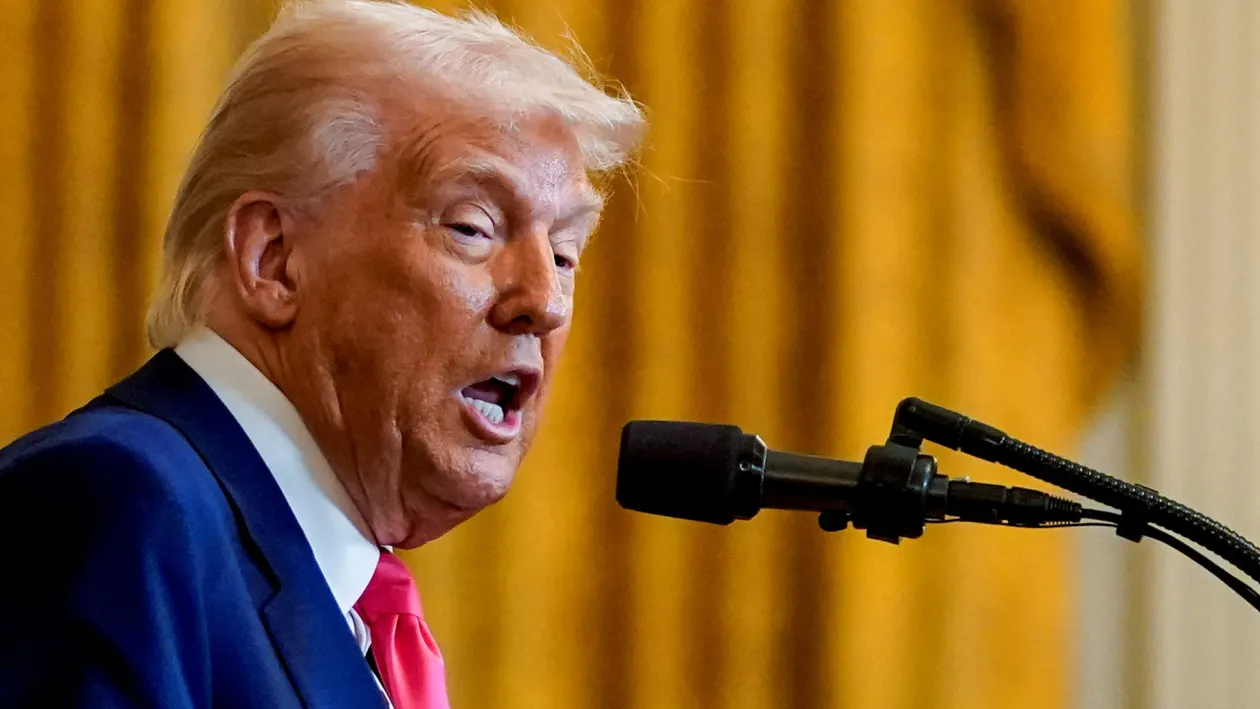China responds with tariff hike in Trump trade war: Live Updates

China Responds with Tariff Hike in Trump Trade War: Live Updates
The trade war between the United States and China, ignited during Donald Trump’s presidency, has seen another escalation. China has responded to the U.S. tariff increases with its own set of tariffs on American goods, further intensifying tensions between the world’s two largest economies. This move comes as both nations have been locked in a protracted dispute over trade practices, with each side accusing the other of unfair policies and trade imbalances.
The Background of the Trade War
The U.S.-China trade war began in earnest in 2018, when President Donald Trump imposed tariffs on Chinese goods, aiming to address issues such as the trade deficit, intellectual property theft, and China’s industrial policies. In retaliation, China raised tariffs on U.S. products. The situation escalated over the years, with both sides imposing billions of dollars in tariffs on each other’s goods. Trump’s administration sought to pressure China into changing its trade practices, but the Chinese government responded with measures aimed at counteracting the U.S. actions.
China’s Response
In a latest round of the trade war, China has announced an increase in tariffs on U.S. imports, targeting products such as agricultural goods, electronics, and machinery. This escalation follows a series of tariff hikes imposed by the Trump administration, which affected Chinese exports to the U.S. The new Chinese tariffs are designed to retaliate against U.S. policies and to exert further pressure on American businesses and the U.S. economy.
Economic Implications
The ongoing tariff hikes have significant economic consequences for both countries. For China, the tariffs increase the cost of American goods, potentially affecting consumer prices and supply chains. Chinese businesses that rely on American goods will face higher costs, which could lead to price hikes for consumers. On the other hand, American businesses exporting to China face reduced access to the Chinese market, hurting U.S. exporters and leading to supply chain disruptions.
Both countries are feeling the economic strain. Global markets have reacted to the uncertainty surrounding the trade war, with fluctuations in stock markets and concerns about the potential for a global economic slowdown. The trade conflict has also had a ripple effect on international trade, with other nations caught in the crossfire.
Impact on Global Trade
The U.S.-China trade war has reshaped the global trade landscape. As the two superpowers engage in a tit-for-tat tariff exchange, countries around the world are reconsidering their trade relations with both nations. Some countries have sought to capitalize on the trade war by negotiating better deals with both the U.S. and China, while others have been forced to adjust their policies due to the changing dynamics of global trade.
Long-Term Effects and Future Outlook
As tensions continue to rise, the future of the trade war remains uncertain. Experts predict that even if the U.S. and China reach a trade agreement, it may not resolve all the underlying issues that led to the conflict. The trade war has revealed deep-rooted structural issues in both economies, including intellectual property concerns, market access, and government subsidies.
The long-term impact of the trade war is likely to be far-reaching, not just for the U.S. and China, but for the global economy as well. With supply chains disrupted, businesses reevaluating their global strategies, and international trade shifting, the consequences of this conflict will likely be felt for years to come.
Conclusion
The U.S.-China trade war is far from over. Despite efforts to reach a resolution, both countries continue to impose tariffs, retaliate with economic measures, and navigate the complex world of international trade. The escalation in tariffs serves as a reminder of the fragility of global trade relations and the potential consequences of trade policies. The world will continue to watch closely as this trade war unfolds, with the hope that diplomatic negotiations can eventually lead to a peaceful resolution.

Visitor comments ( 0 )